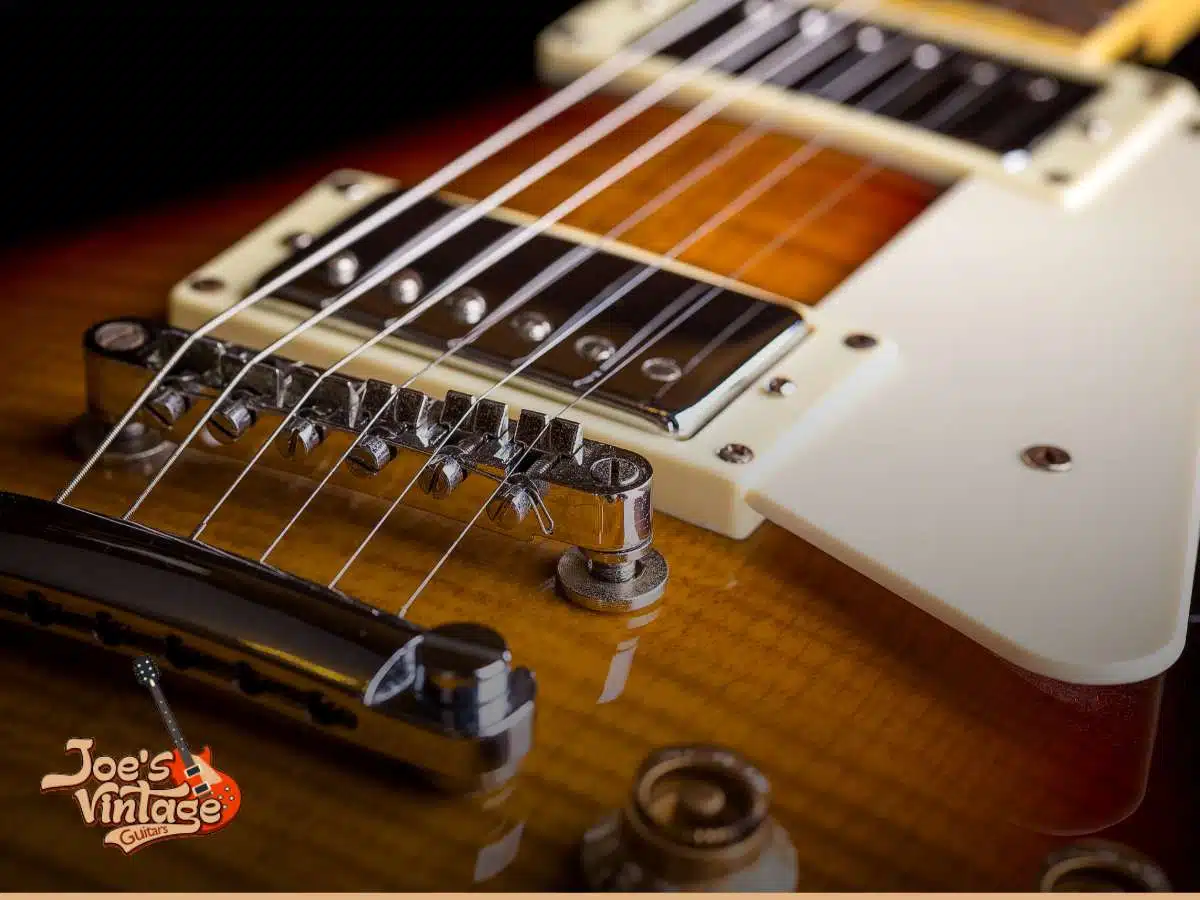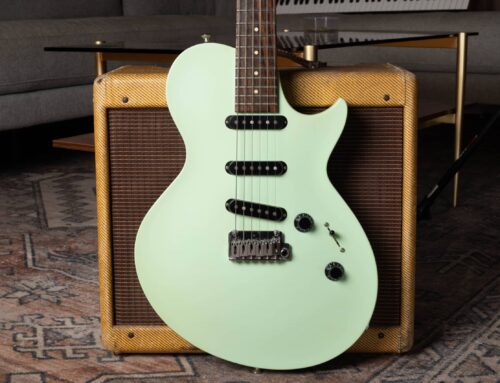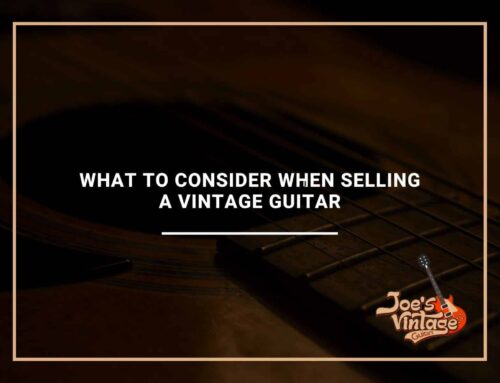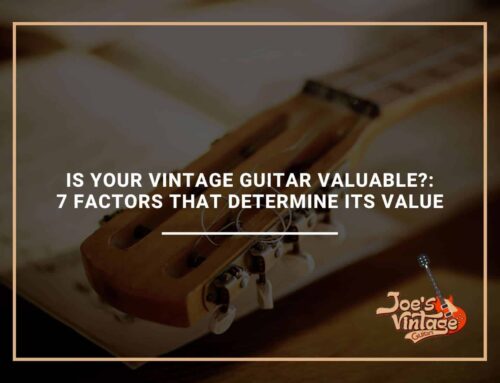How The Year Of Manufacture Of Your Vintage Gibson Guitar Affects Its Price
Authenticating Your Gibson Guitar Using Serial Numbers
If you’ve got a vintage Gibson guitar, you should be aware of how the year it was produced impacts its value. Newer Gibsons are popular, but they only account for some guitars that have hit the market over the years.
One of the best and most reliable ways to authenticate your Gibson date is by knowing how to recognize the exact serial numbers. But how can we do that? Consider these tips from a trusted USA guitar buyer.

How To Date A Gibson Guitar
1975 to 1977, the serial number was normally printed on a decal attached to the From headstock’s rear. This should be an 8-digit number. The first and second digits will look like this:
99 = 1975 00 = 1976 06 = 1977
Gibson launched the serialization technique in 1977, and today Gibson USA, Gibson Acoustic, and the Gibson Custom factory in Memphis, Tennessee predominantly employ it.
The headstock’s back will have an 8-digit serial number with the words “MADE IN USA” below it. The pattern looks like this:
YDDDYRRR
- YY is the production year,
- RRR is the designation for the factory,
- And DDD is the day of the year.
Before 1984, when the Kalamazoo plant closed, the numbers 001-499 signified Kalamazoo manufacturing. Through 1989, the rankings 500–999 remained to represent Nashville production. Since 1989, all Gibson electrics and acoustics have been produced in Nashville or Memphis. Each day, Bozeman’s ranking numbers begin at 001, while the electrics may go as low as the 300s.
For example, 70108276 indicates that the guitar was produced on Jan. 10, 1978, in Kalamazoo and was the 276th instrument stamped that day.
Since it might be tricky to understand the serial number, feel free to ask a USA guitar buyer for more help.
Why Are Vintage Gibson Guitars So Valuable?
Whether you have an electric or acoustic guitar, if you have an antique Gibson, there is a good chance it will sell for a respectable amount at auction.
However, selling Gibson guitars in this way, and the eventual financial success, will be highly dependent on many factors:
- Production year
- The exact model
- Its current state
- It’s rarity
The color of the instrument can sometimes have a significant impact on the price it commands too.
An antique Gibson guitar, such as a Les Paul, will always be in demand, whether it has humbuckers or single coils, though certain eras will command more attention than others.
Between 1970 and 1985, the company supposedly suffered a setback when their electric guitars were not manufactured to their previously exacting standards. Therefore, a solid-body electric guitar from this era won’t be as valuable as a Gibson guitar from the 1960s.
Selling historic guitars can be a challenge, and many guitar centers won’t be able to help. Fortunately, you have other ways to get proper guidance and sell your vintage guitar at the best price. One of them is to visit a reliable Mesa guitar shop.
Are Gibson Guitars That Rare?
Generally speaking, Gibson guitars are not as rare as other brands, but they are still quite collectible. That’s because their quality craftsmanship and powerful sound stand out a lot.
Moreover, Gibson has been producing guitars for more than a century and their instruments have been used by many iconic musicians in the world. Whether you want to sell a vintage Gibson guitar or a modern one, they are definitely worth the price!
Keep in mind that Gibson has had numerous instruments sell incredibly high at auction. Undoubtedly, one of the most well-known electric guitars ever produced is the 1959 Les Gibson Paul Standard. This model can be sold for more than $100,000 when it’s in perfect condition!
These are only a few facts. Any USA guitar buyer is always excited to acquire Gibson guitars because of their uniqueness and historical value.
Where Can I Sell My Vintage Guitars?
Knowing the serial number of your vintage guitar is essential to sell it at the best possible price. But we know that it’s not always easy! To find your vintage guitar’s serial number and learn more about its real value, contact Joe’s Vintage Guitar for well-informed guidance! Contact us.
Joe’s Vintage Guitars
47 N Fraser Dr E
Mesa, AZ 85203
Phone: (602) 900-6635
Email: joesvintageguitars94@gmail.com

Written by Joe Dampt
“Driven by a love for classic tunes, I specialize in buying, selling, and appraising vintage guitars, bringing music and history together.”






